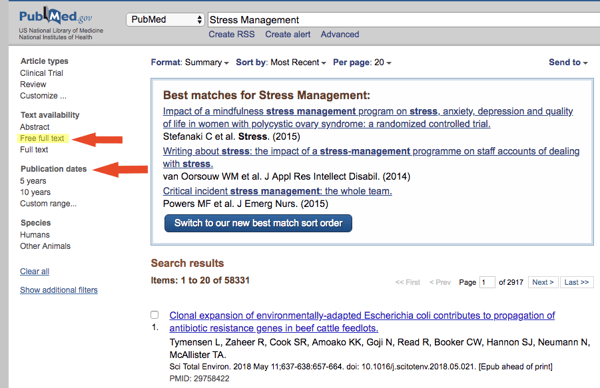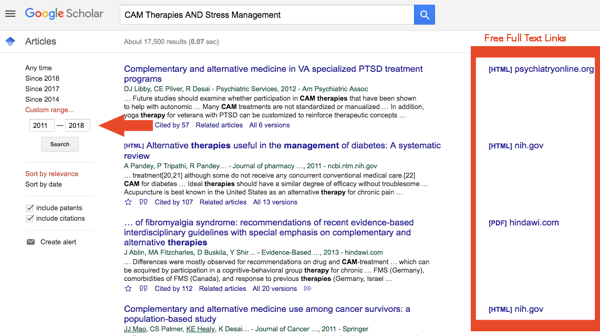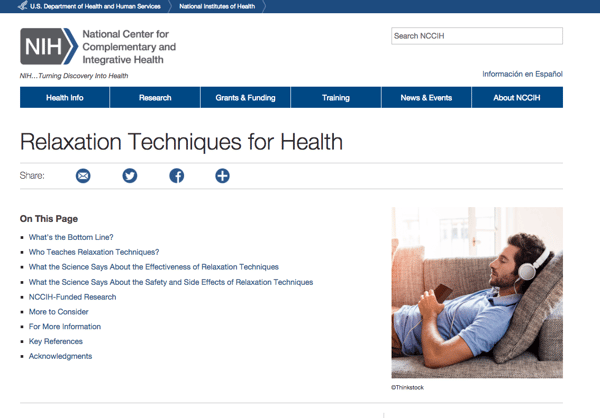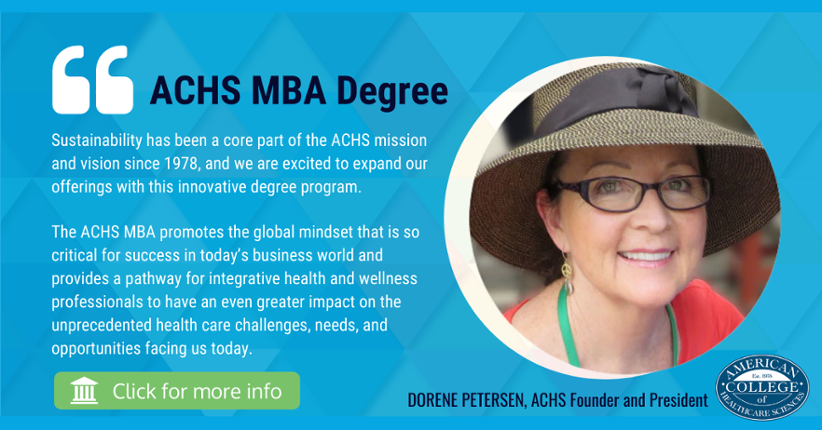It’s the age of information. You can read an article on any topic with the click of your mouse or phone screen. So, it can be challenging when you’re trying to find up-to-date and reliable research on a specific subject. Complementary and Alternative Medicine (CAM) therapies for stress management is a good example. Where to begin?
Stress management is a hot topic right now (especially since May is Mental Health Awareness Month), so it’s even more important to find quality articles. To make this process a bit easier for you, here is a list of resources to find the most current research on CAM therapies for stress management. Now, sit back, relax, inhale your favorite essential oil blend, and let’s jump into these stress management resources.
Stress Management – CAM on PubMed
CAM on PubMed is a subset of the National Library of Medicine’s PubMed database (CAM on PubMed). And it’s free! This subset is specific to CAM-related research only. For example, this link displays research articles on CAM therapies for stress management. PubMed is great because it has a variety of limiters. For instance, it has a free full-text limiter and a publication date limiter. In the example above, these limiters are located on the left-hand side of the screen. Overall, if you are looking for current research on CAM topics, I suggest exploring the CAM on PubMed database.

Google Scholar – CAM Therapies and Stress Management
Google Scholar, a subset of Google, is a search engine that indexes full text or citations of scholarly literature across all disciplines. Like CAM on PubMed, the best part about it is that it’s free! (About Google Scholar). Similar to PubMed, Google Scholar has limiters, such as a publication date limiter. If you follow the link above, you will see the most recent (2011-2018) research on CAM Therapies and Stress Management.

National Center for Complementary and Integrative Health – Stress
The National Center for Complementary and Integrative Health (NCCIH), is “the Federal Government’s lead agency for scientific research on the diverse medical and health care systems, practices, and products that are not generally considered part of conventional medicine” (NCCIH). NCCIH has a page dedicated to current holistic research and information on stress and relaxation techniques. There is general information for consumers, health professionals, and a “research spotlights” section, which is dedicated to the most current research on holistic health practices and stress. The website is occasionally updated, and the dated is always noted at the bottom of the page.

Interested in learning even more about CAM therapies? The American College of Healthcare Sciences offers an Associate of Applied Science in CAM, Graduate Certificate in CAM, and Master of Science in CAM. Learn more about these accredited, online programs in CAM on the ACHS website here.
This article is for informational purposes only. It is not intended to treat, diagnose, cure, or prevent disease. This article has not been reviewed by the FDA. Always consult with your primary care physician or naturopathic doctor before making any significant changes to your health and wellness routine.
Disclosure of Material Connection: I am an Online Instructional Design Librarian for American College of Healthcare Sciences, the Institution that publishes this blog. However, all opinions are my own. This blog may contain affiliate links. I am disclosing this in accordance with the Federal Trade Commission’s 16 CFR, Part 255: “Guides Concerning the Use of Endorsements and Testimonials in Advertising.”





